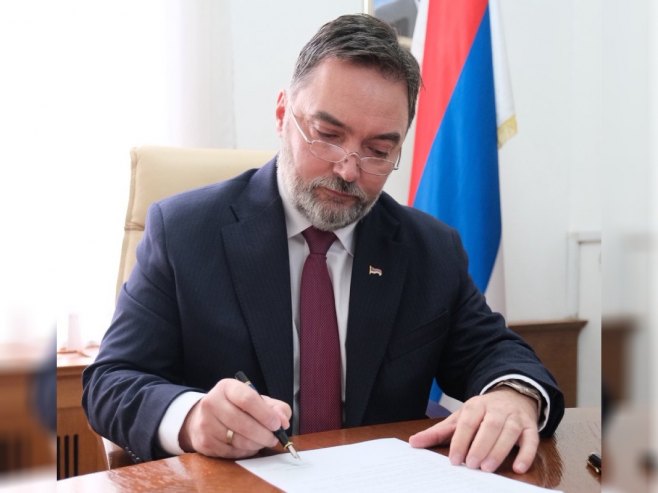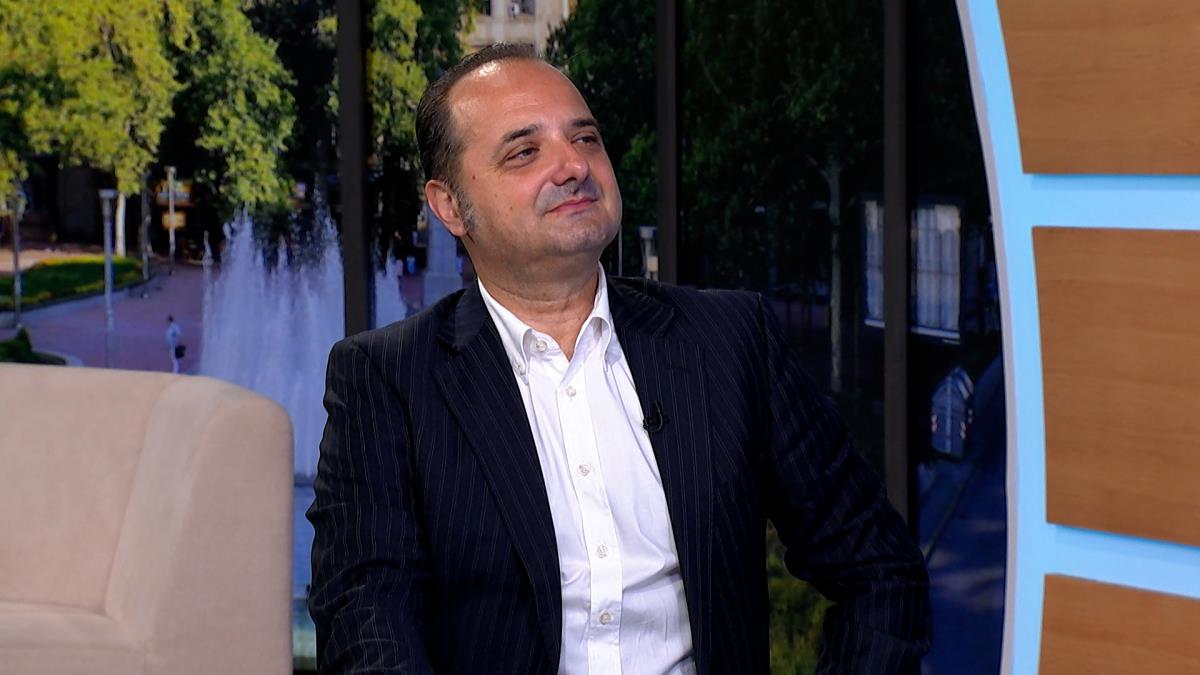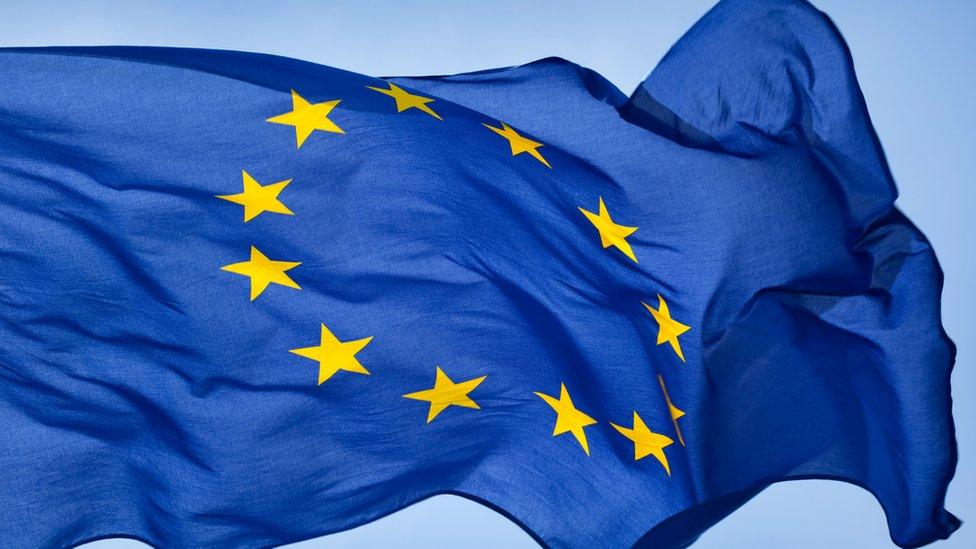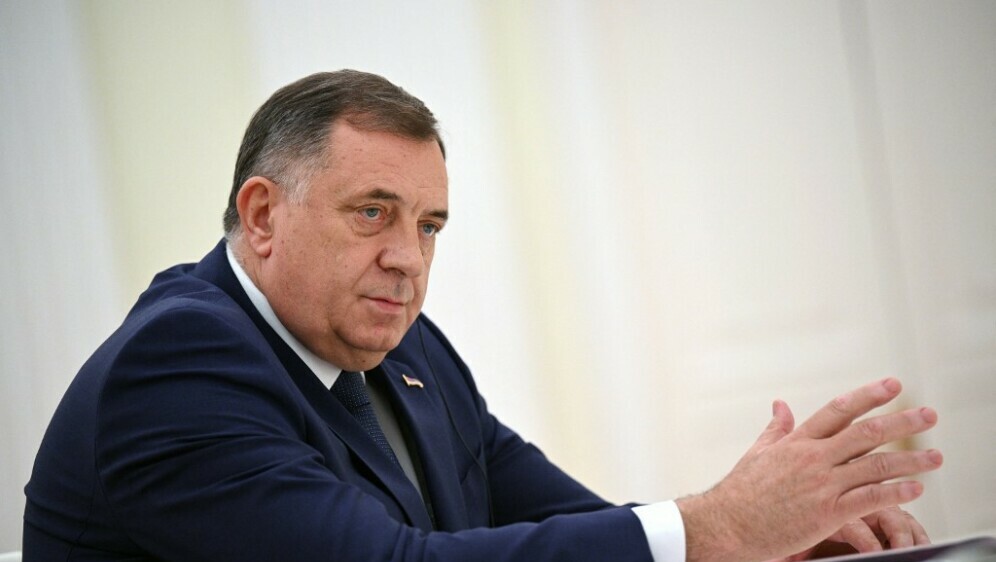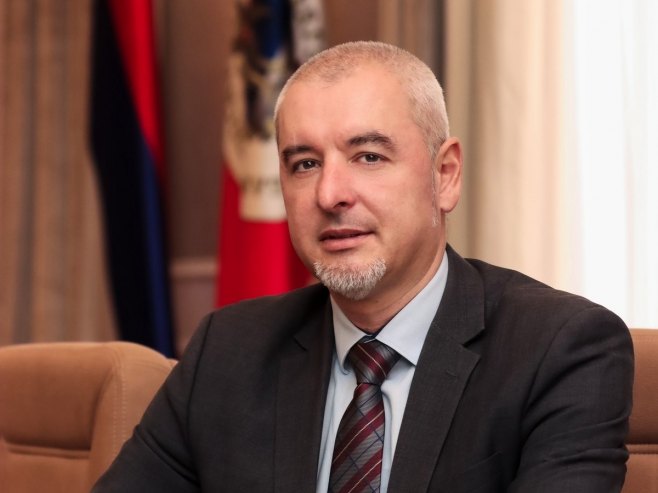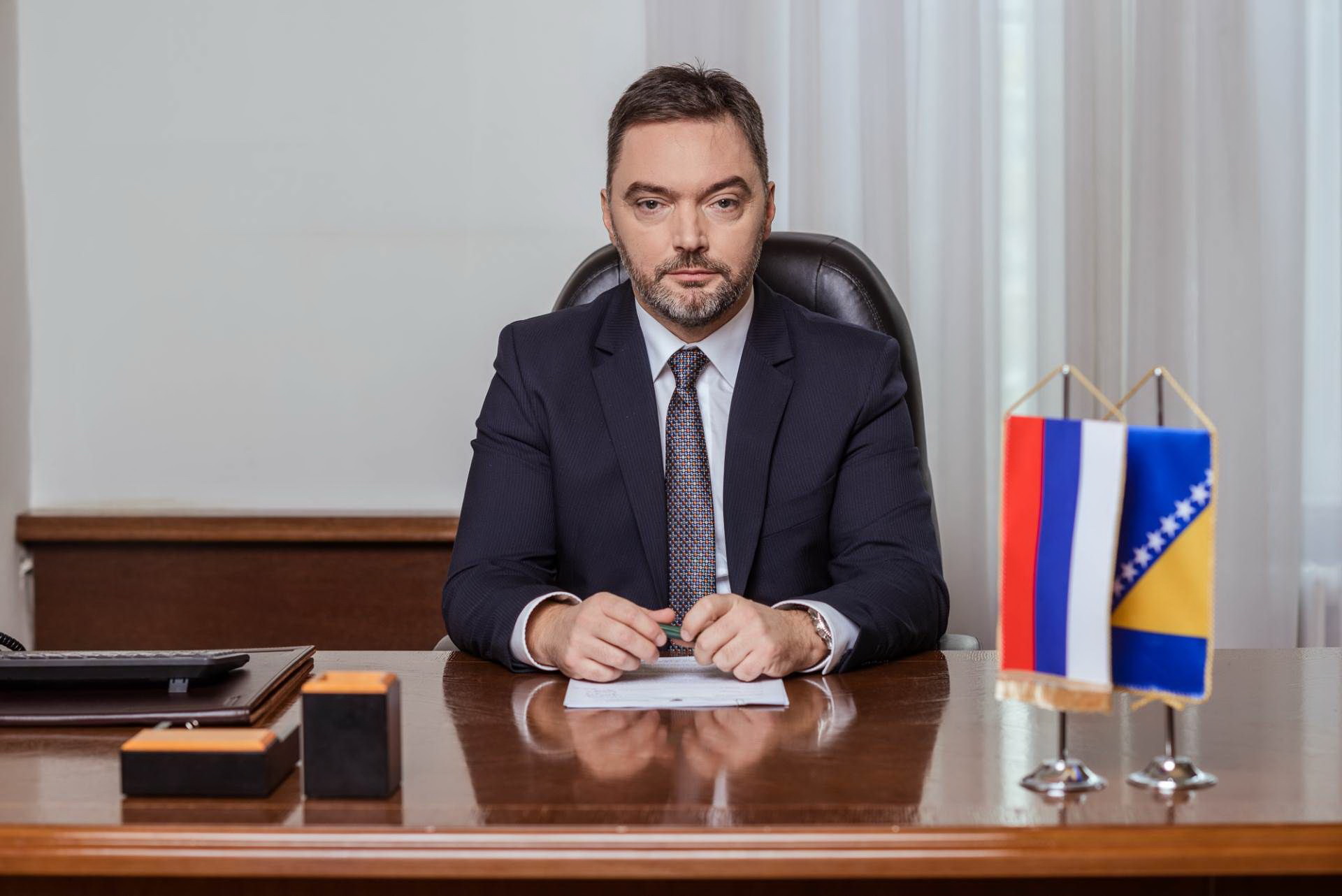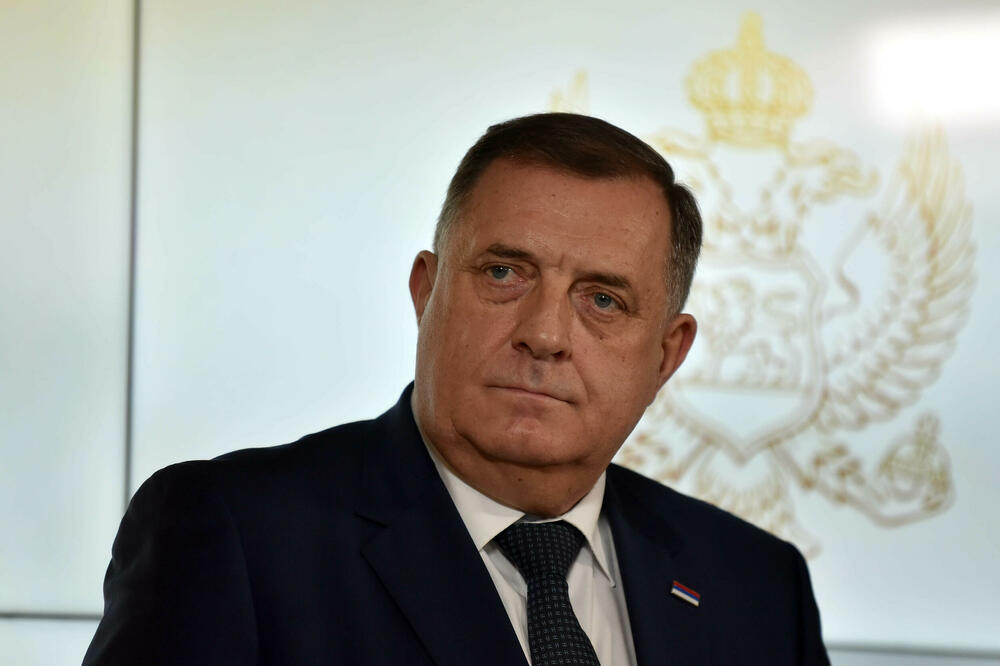Republika Srpska is under intense pressure, perhaps the greatest in the past 30 years.
Classic political, institutional, and judicial violence is being conducted against its leadership, but also against the Serb people as a whole, fully exposed and without disguise. Historian Aleksandar Raković said this in an interview for “Glas Srpske,” noting that this is part of a broader plan, with Christian Schmidt and BiH judicial institutions as the main executors, and Republika Srpska as the ultimate target.
“Everything they are doing represents an open threat to all citizens of Republika Srpska. If they wish to be free-minded, they may experience open persecution and sanctions. This is violence against the entire Republika Srpska, its people, and families. The current leadership has shown that it will not give in and that it will continue, by all legal means, to defend Republika Srpska and its sovereignty, and thus the Serb identity as well. By defending this, Serb national interests are also being defended, which, in my opinion, should ultimately move towards separation within BiH, following the Czechoslovak model. After everything Republika Srpska has been facing for some time, I see no purpose in the continued existence of BiH. Why waste energy on whether BiH can survive? It is obvious that it cannot, especially since there are forces openly dismantling the Dayton Peace Agreement. Therefore, separation is the only and best solution. I believe this option will become topical and supported by certain Western international circles within a year or two,” Raković emphasized.
GLAS: How much are the current global developments working in our favor, considering there is a growing movement of states returning to traditional values and the family as the foundation of society?
RAKOVIĆ: Global circumstances are indeed working in our favor, but we must be patient, especially because the main Western actor, by which I mean the USA, will not be able to seriously engage with our Balkan issues for at least another year. They will be preoccupied with internal and global matters, involving the balance of power with other major powers.
When our Serb issues eventually come onto the agenda, I believe we will then be able to hope for a more positive and favorable resolution regarding the protection of Serb national interests. But, as I already mentioned, until then we must remain patient, wise, and persistent, waiting for the opportunity — the geopolitical moment — which we must seize. The timeframe for resolving Serb national interests could be very short, ranging from a few months to a year or two.
GLAS: Which political forces are intertwining in our region, and is our biggest problem, as Jovan Cvijić once said, that we have a house on the road that separates East and West?
RAKOVIĆ: That is undoubtedly one of our biggest problems. But there are others. In our region, the interests of the West, Russia, and Turkey traditionally intertwine. There is also a strong Arab factor, and a Wahhabi presence that did not exist earlier. We now also see a rising Shiite Islamic influence.
Speaking of Western influence, it is not always homogeneous, but countries like Germany, the USA, and the UK sometimes find common ground in this region. Thus, many factors clash here — in the territory of the former Yugoslavia, a small geographic space but obviously a significant one. Nowhere else in the world does such a small space bring together Orthodox, Christian, and Islamic civilizations.
And this commingling of the three elements will always be present, to a greater or lesser extent. It has existed for centuries, making our region often very complicated. However, it also produces resilient people — determined and ready for anything. People from these parts are tougher than others. Westerners do not have our experiences.
GLAS: How dangerous is the new wave of Russophobia spreading across Europe, particularly with Germany leading the way?
RAKOVIĆ: When the special military operation in Ukraine began, we witnessed an increased presence and activity of EUFOR forces in BiH, especially in Republika Srpska. This is nothing but an open demonstration of military force against the Serb people, perceived as pro-Russian. Thus, besides Russophobia, there is undoubtedly a strong strain of Serbophobia in much of the Western world. It is a branch of Russophobia.
Earlier, in many Western countries, there was also a phenomenon known as Byzantophobia. Ultimately, it becomes clear that what bothers them most is the Orthodox faith — Orthodoxy — and all those unwilling to serve the interests of the West and colonialists.
It is important to mention that there is a crucial difference between Western and Orthodox civilizations: the Westerner sacrifices others for his own interests, while the Orthodox sacrifices himself for others. This is the fundamental difference between the two civilizations, which may appear similar on the surface but hold fundamentally different value systems.
GLAS: You are a member of the project “Serb National Interests – Yesterday, Today, Tomorrow,” initiated by the Serb diaspora to strengthen the identity of Serbs abroad through the protection of historical truth. Why is this important, and what will the practical assistance look like?
RAKOVIĆ: Communication with our diaspora is of vital importance, both for Serbia and Republika Srpska, because we Serbs are one living organism. Therefore, it is crucial to engage openly with our diaspora on all important issues — not only about the past but also the present and future.
The point is to strengthen the connection between the diaspora and the homeland, to reach the best solutions that will best represent Serb national interests as a whole. This includes frequent communication to avoid misunderstandings, especially among people living far from home, who may be exposed to propaganda in the countries where they reside, often contrary to the reality of our national interests. Our goal is to change that.
GLAS: Which countries will be the focus of this project, and how do we confront the powerful revisionist politics dominant in some Western states?
RAKOVIĆ: This issue must be addressed on multiple levels. One aspect is strengthening ties with the diaspora, which is crucial for presenting the truth abroad. Other methods involve much larger financial investments for lobbying. Many companies specialize seriously in this work.
To achieve success, Serbia must continue diplomatic engagement, explaining to political elites in other countries the real situation in the region, clarifying the past, present, and future of the Western Balkans, particularly now as tectonic changes reshape the future global order.
The pope and Stepinac
GLAS: A new pope will soon be elected. Many, especially supporters of the so-called MAGA project, hope it will be someone with more conservative views rather than liberal ones. How could this impact future relations between Catholicism and Orthodoxy?
RAKOVIĆ: First of all, I do not believe that MAGA can significantly influence who will sit on the Holy See. Those hoping that MAGA can establish “control” over the Vatican are unrealistic, considering the Vatican is an institution that has lasted over 2,000 years.
As for the second part of your question, it is difficult to answer. It is complicated. Pope Francis was quite liberal and came from a communistically influenced milieu. Would a more conservative pope establish better relations with Orthodox countries — it is hard to say.
I believe that, for us as Serbs, the most crucial issue is the attempted canonization of Cardinal Stepinac, which the Croatian authorities and church continue to push for. Pope Francis halted the process and set it aside, but we do not know how his successor will act on the matter. I believe the issue will be brought back onto the agenda and revived by the Catholic Church in Croatia.
If, by any chance, Stepinac is proclaimed a saint, it would inevitably lead to the revival of everything that the Independent State of Croatia (NDH) represented.
Source: Glas Srpske
